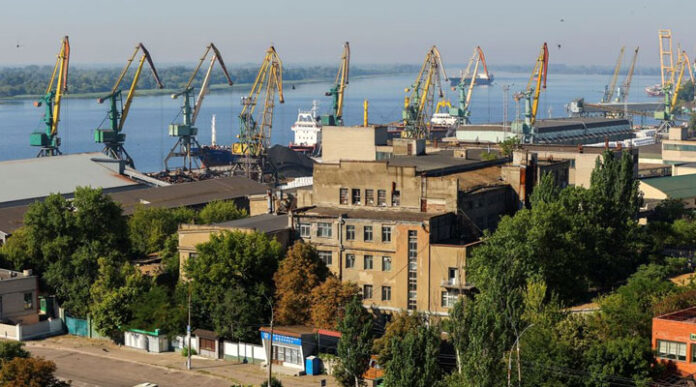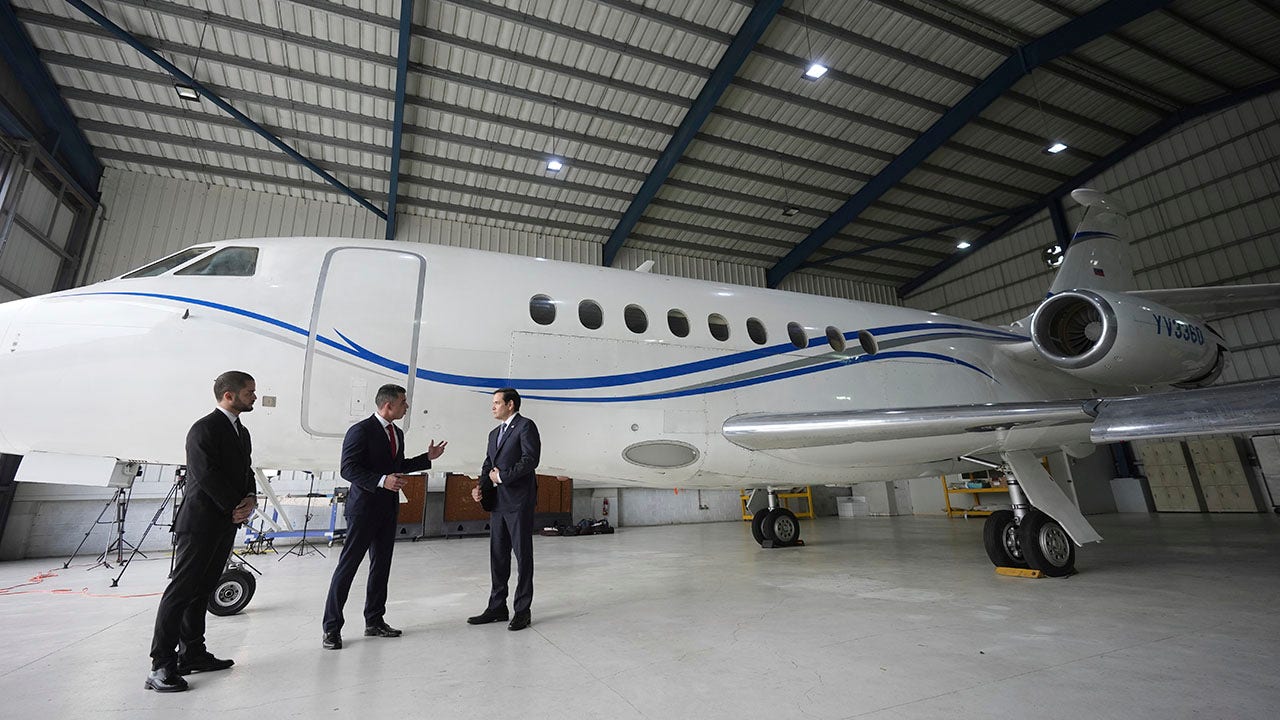Ukraine announced a long-awaited counter-offensive on Monday to retake territory in the south seized by Russian forces since their invasion six months ago, reflecting Kyiv’s growing confidence as Western military aid pours in.
The announcement came as a team from the United Nations nuclear watchdog arrived in Ukraine to inspect the Zaporizhzhia nuclear plant, which was captured by Russian forces in March but is still run by Ukrainian personnel and has become a flashpoint in the conflict.
Moscow and Kiev have traded accusations of shelling near Europe’s largest nuclear plant, which is close to the front lines, amid fears of a radiation disaster in a country still haunted by the 1986 Chornobyl disaster.
“Today we began offensive operations in various directions, including the Kherson region,” southern command spokeswoman Natalia Humeniuk told Ukrainian public broadcaster Suspilne.
In stark contrast to its failed attempt to capture Kyiv, Russia quickly captured swaths of Ukraine’s south near the Black Sea coast, including the city of Kherson, in the early stages of the war.
Ukraine has been attacking Russian ammunition dumps and disrupting supply lines with sophisticated Western-supplied weapons. Humeniuk told a news conference on Monday that Ukraine had struck more than ten such ammunition dumps in the previous week, adding that the strikes had “unquestionably weakened the enemy.”
She refused to elaborate on the counter-offensive, saying Russian forces in southern Ukraine remained “quite powerful.”
Sergei Aksyonov, the governor of Ukraine’s Russian-annexed Crimea Peninsula, dismissed her announcement as “another fake of Ukrainian propaganda.” Crimea borders the Kherson region.
According to Russia’s RIA news agency, which cited local official Vladimir Leontiev, people were being evacuated from workplaces in Nova Kahokva, a town 58 kilometres (36 miles) east of Kherson, after Ukrainian forces carried out more than ten missile strikes there.
SAFETY OF NUCLEAR ENERGY
Earlier this week, the head of the International Atomic Agency (IAEA) said he would lead a team of inspectors to the Zaporizhzhia plant on the Dnipro river in southern central Ukraine, without specifying a date.
“We must ensure the safety and security of Ukraine’s and Europe’s largest nuclear facility,” Rafael Grossi wrote on Twitter.
Separately, the IAEA stated that the mission would assess physical damage, evaluate working conditions at the plant, and “determine the functionality of safety and security systems.” It would also “perform urgent safeguards activities”, a reference to keeping track of nuclear material.
According to Russian-installed officials, a Ukrainian missile strike ripped a hole in the roof of a fuel depot at the Zaporizhzhia plant on Monday.
According to Russian news agencies, Russia’s defence ministry said its forces shot down a Ukrainian drone that was attempting to attack the nuclear power plant. It stated that no serious damage had occurred and that radiation levels were normal.
Reuters was unable to independently confirm either report.
The Kremlin called the IAEA mission “necessary,” urging the international community to put pressure on Ukraine to reduce military tensions at the plant.
The UN, the US, and Ukraine have all called for the withdrawal of military equipment and personnel from the nuclear complex to ensure that it does not become a target. However, the Kremlin has once again ruled out leaving the site.
According to Maria Zakharova, a spokeswoman for Russia’s foreign ministry, the IAEA mission must conduct its work in a politically neutral manner. “They have to be objective,” she said on the Rossiya 24 television channel.
Russian forces opened fire on Enerhodar, the Dnipro riverside town where the plant is located, said Ukrainian President Volodymyr Zelenskiy’s chief of staff late on Sunday on his Telegram channel, alongside a video of firefighters dousing burning cars.
“They provoke and attempt to blackmail the world,” said Andriy Yermak.
Liliia Vaulina, 22, one of a growing number of Enerhodar refugees arriving in the Ukraine-held city of Zaporizhzhia, some 50 kilometres (30 miles) upriver from the plant, expressed hope that the IAEA mission would result in the demilitarisation of the area.
“I believe they will halt the bombing,” she told Reuters.
Due to shelling, two of the plant’s reactors were disconnected from the electrical grid last week.
‘EVERY SHELL COUNTS’
Russian forces shelled military and civilian infrastructure near Bakhmut, Shumy, Yakovlivka, Zaytsevo, and Kodema in the Donetsk region of eastern Ukraine, Ukraine’s military said early Monday.
On Sunday, Russian airstrikes killed eight civilians in Donetsk province, according to the governor, Pavlo Kyrylenko.
Moscow denies that civilians were targeted.
Russia refers to its actions in Ukraine as a “special military operation” to demilitarise the country. Ukraine, which gained independence from the Russian-dominated Soviet Union in 1991, and its Western allies have dismissed this as a flimsy pretext for a conquest war.
The invasion of Ukraine has triggered Europe’s most devastating conflict since WWII.
Thousands of people have been killed, millions have been displaced, and cities have been destroyed. The war has also put the global economy in danger of an energy and food supply crisis.
On Monday, Zelenskiy accused Russia of attempting to prevent European nations from adequately stockpiling gas storage facilities for the upcoming winter.
Sweden, which plans to join NATO in response to Russia’s invasion, announced nearly $50 million in additional military aid to Ukraine on Monday during the visit of Ukrainian Foreign Minister Dmytro Kuleba to Stockholm.
Kuleba pleaded with Sweden to supply weapons such as howitzers and shells. “Every euro, bullet, and shell counts,” he said.
Chancellor Olaf Scholz said at a conference in Prague that Germany will send more arms to Ukraine in the coming weeks and will help upgrade Kyiv’s artillery and air defence capabilities. He also reaffirmed Germany’s support for Ukraine and several other ex-Soviet republics joining the European Union.





